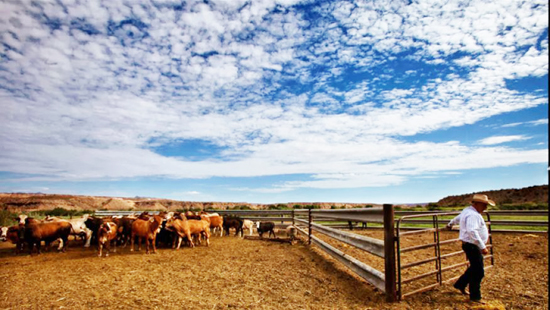
Like Rich,
I deeply respect the rule of law. As an attorney who practices in
federal courts across the nation, I respect the rulings of those courts
(indeed, much of my career is spent securing rulings from federal courts
to protect individual liberties) and — having reviewed the pleadings in
Bundy’s case — I do not fault the courts’ orders. John Hinderaker is right, “Legally, Bundy doesn’t have a leg to stand on.”
But, as Hinderaker notes, that’s not the end of the story. I’d urge you to read Hinderaker’s entire analysis
and don’t want to repeat it here. Instead, let me back up a bit and
place the Bundy controversy in the larger context of America’s
urban/rural divide and the resulting polarization of the increasing
powerlessness of rural America.
On March 21, the Wall Street Journal published a prescient piece
highlighting geography rather than ideology as a key driver in
America’s growing partisan divisions. Yes, there are key differences in
ideology, but those ideological divisions are nurtured and cultivated
according to where we live. When I lived in Midtown, Manhattan, or
Center City, Philadelphia, the culture was dramatically different from
our current home base in Maury County, Tennessee. And the differences
were not just confined to culture, but also included perceived political
and economic interests.
While rural America literally sustains life for urban America, many urbanites dislike large-scale farming (this parody
is worth seeing), would like to see the rest of the country essentially
transformed into a nature preserve, and argue that to the extent land
is “used,” it should be used for selectively-defined “renewable”
purposes, like solar energy or wind farms. The result — when urban
regions become dominant — has been amply chronicled by Victor Davis
Hanson and many others: rural regions increasingly serve urban ones and
do so under comprehensive urban regulatory schemes that disrupt lives,
destroy livelihoods, and lead to widespread frustration and despair.
And all of it is legal.
As
government grows ever-larger, majority rule becomes more consequential
for minority populations. The regulatory state grows, and rural
Americans are left with little recourse. The courts won’t overturn
regulatory actions absent a clearly-identified liberty interest (with
the law granting wide discretion to federal agencies), in many
states legislatures are dominated by urban voting blocs, and —
particularly in the West — massive federal ownership of land means the
voice of the local farmer or landowner is diluted into meaninglessness
within the larger national debate.
With few options left within
conventional politics, rural Americans are beginning to contemplate more
dramatic measures, such as the state secession movements
building in Colorado, Maryland, California, and elsewhere. The more
viable state secession movements aim to limit urban control by literally
removing rural counties from their states and forming new states around
geographic regions of common interests.
But until there’s a
long-term solution, we may very well see more Bundy Ranch moments, where
individual Americans (and their allies) simply refuse to consent to
laws that destroy their way of life for the sake of regulations that
provide no perceivable benefit to others. (I can only imagine my
frustration if I had to end a more-than-century-old family lifestyle,
arguably for the sake of a turtle that no one will see).
The
long-term solution is simple to conceptualize but difficult to
accomplish: de-escalate the stakes of our political disputes by limiting
the power of government over American lives. Americans have always had
profound differences, and we live together with those differences when
victory for one side doesn’t mean inflicting real harm on the losers.
But when victory for one side means the end of a way of life for the
losers, instability can and will result.
I hope and pray that the
dangerous standoff at Bundy Ranch was an aberration and not a
harbinger, but until we can limit government’s power, I fear that
respect for law will increasingly give way to contempt for the
lawmakers.
(Final note: Even if one sympathizes with Bundy, nothing — absolutely nothing — justifies this utterly reprehensible nonsense. Deliberately placing women in harm’s way for propaganda value is a Taliban tactic, and I do not use that term lightly).
Bundy and the Rule of Law
When the Cows Came Home – A Rancher’s Story, Our Story
Related Reading:
Bundy and the Rule of Law
When the Cows Came Home – A Rancher’s Story, Our Story
No comments:
Post a Comment